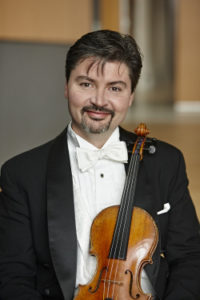Listen-Respect-Collaborate. Using these three core values as guides, the Minnesota Orchestra has taken a multifaceted approach to DEI work since 2015. What started as an ad hoc diversity committee of musicians and staff members quickly expanded to include board members and staff conductor Roderick Cox.

Michael Sutton
Photo credit: Joel Larson
But where are my manners? Before I go any further, please let me introduce you to AMELIA. This is the internal acronym we have decided to use instead of BIPOC, because it reflects global heritage rather than skin color. AMELIA stands for African, Middle Eastern, Latin, Indigenous, and Asian. We met AMELIA through our longest running partner in DEI Work, Justin Laing of Hillombo Consulting, LLC. When the ad hoc diversity committee was named an official Minnesota Orchestra board committee in 2019, Justin was hired as a consultant to help create an organization-wide anti-racist leadership plan. Justin‘s brother Alex, Principal clarinetist in Phoenix Symphony, has also been quite helpful.
Others we have worked with over the years include Jessica Schmidt of Orchestrate Inclusion, and Alicia Sojourner, who workshopped us on staff culture and integration, truly opening our eyes. We have also brought in Sphinx President Afa Dworkin for an organization-wide conversation discussing her organization, NAAS, and our collaboration with the Sphinx Virtuosi and Sphinx LEAD (postponed due to Covid).
Another interesting project coming soon from our communications department is a brand new DEI tool kit. It is designed to help colleagues across the organization communicate about our DEI projects, principles, and priorities. Its main focus will be an extensive Q and A document to help us know how to respond to questions from donors, audiences, people on social media, etc.
Hiring practices
Starting in 2017, our orchestra hiring practices began to evolve. We established the Good Fellowships, an ongoing program of two-year residencies for African American, Latin American, and Native American professional orchestral musicians early in their careers.
By 2018 we began participating in the Sphinx Orchestral Partner Auditions and joined the National Alliance for Audition Support. Last summer, my section—second violin—used SOPA to identify and hire two one-year positions. The upcoming audition to permanently fill those chairs will accept all résumés, as we have made an orchestra-wide decision not to screen out candidates by résumé alone. Following discussions amongst ourselves about the NAAS Guidelines, each audition committee also actively works to recruit AMELIA candidates.
Internal Education Workshops
Over the last two seasons Justin Laing has curated a quarterly series of anti-racist workshops for us, and given us meaningful reading recommendations—How to be an Antiracist by Ibram X. Kendi has been a great resource to our committee as has The Theory Behind the Practice: A Brief Introduction to the Adaptive Leadership Framework by Ronald Heifetz, Alexander Grashow, and Marty Linsky, from Harvard Business Press.
Some other highlights and points of interest from this past season include an AntiRacist Continuum (https://philanos.org/resources/Documents/Conference%202020/Pre-Read%20PDFs/Continuum_AntiRacist.pdf), which Justin presented in a zoom session. It shows us how we can get from an exclusive organization to a fully inclusive anti-racist multicultural organization.
We also held a study session on the work of Resmaa Menakem, a local clinical therapist who has worked with the Minneapolis police, our public schools, a domestic violence center, and military contractors in Afghanistan. Menakem believes the trauma can be physically passed down through generations and requires a healing process based on the latest neuroscience and somatic healing methods to help us grow beyond our entrenched racialized divide. If you’re interested in more, Resmaa elaborates on this topic on the June 4, 2020 episode of On Being with Krista Tippett, titled “Notice the Rage; Notice the Silence.”
In October 2021, we were able to contribute five new recordings to the African Diaspora Music Project library. We spent a week with five pieces by AMELIA composers that had either never been professionally recorded, or ever recorded at all.
Programming
We are on a journey, and we are taking our audiences with us. Programming has been taken on largely by the Artistic Advisory Committee, with help and input from conductors, the education department, and the artistic planning department. We have had the institutional goal of featuring an AMELIA composer on every single concert for about two years now.
This year, we had our first Lunar New Year’s celebration concert, organized by our Principal bassoonist Fei Xie. It featured a Chinese conductor, a local composer and pipa player, and Asian music from different countries that celebrate the lunar new year. We did a full concert for adults, and our education department put together a Family Matinee based on the same music.
One thing I very much appreciated this season was a performance of Joel Thompson’s powerful work Seven Last Words of the Unarmed. We also invited Joel to visit from New Haven in order to give us a presentation on piece and to meet with our Community Advisory Board, made up of local leaders representing grassroots organizations working for social justice.
If you’re interested in learning even more about the Minnesota Orchestra‘s DEI and anti-racism work, feel free to visit the Disrupting Systematic Racism page on our website.
I like to try and come up with analogies, and this is how I think of our DEI work—we have started with an uncut gemstone of honest intention. We are not gem cutters, but we are asking for help, and learning as we go. The main facets we are carving are listening, respect, and collaboration. The next set of facets are programming, anti-racist learning projects, and hiring practices. We hold the gem up to the light, and polish it when we can. And inside that gem, we are looking for as much inclusion as possible.





